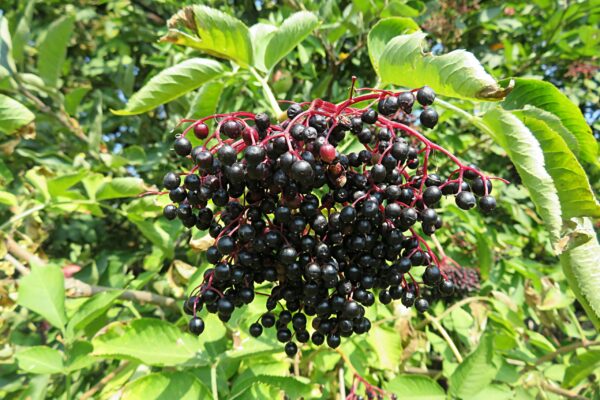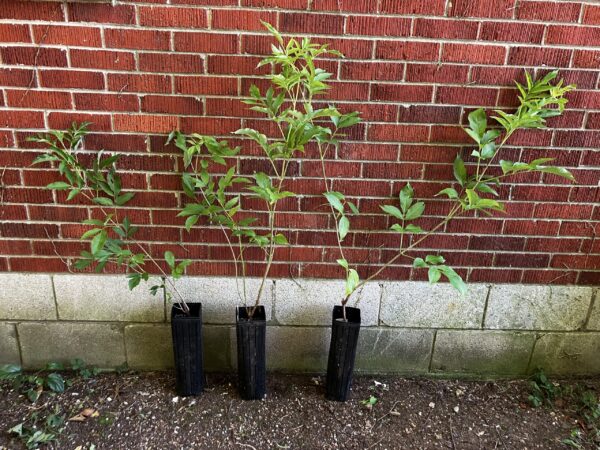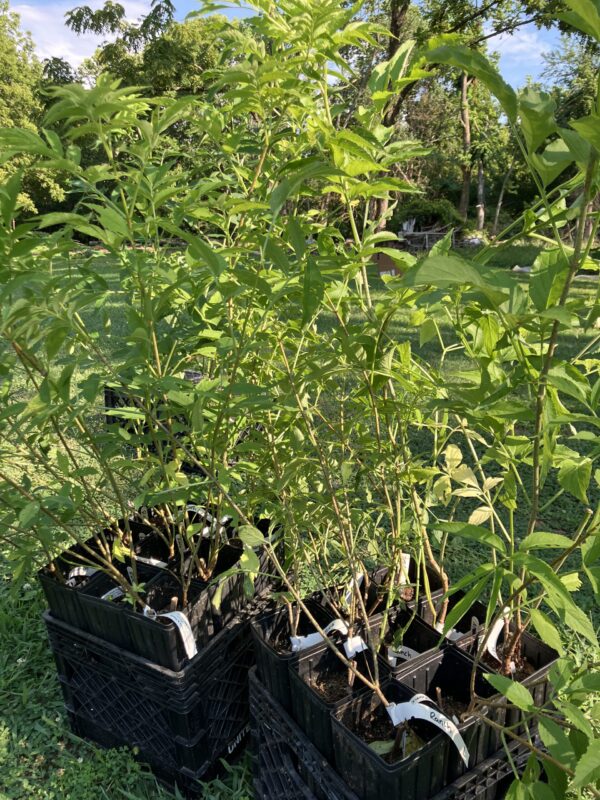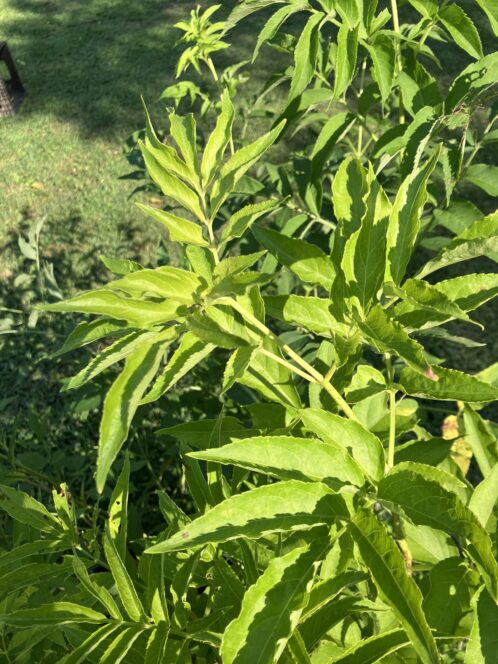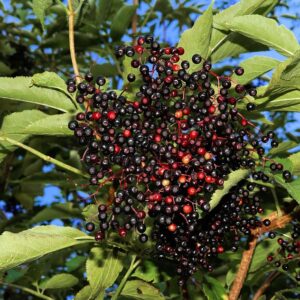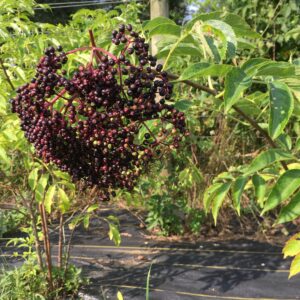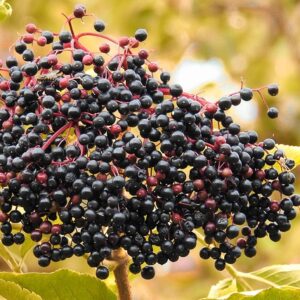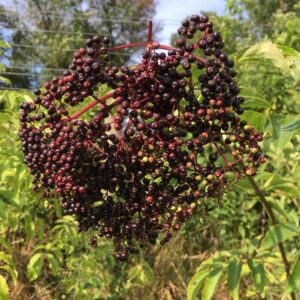Ranch Elderberry (Sambucus canadensis)
The Workhorse of the Elder World
Highly drought tolerant, pest and disease resistant and over-all adaptable and able to thrive where other elders struggle, Ranch is a true workhorse, getting the job done regardless of circumstances. It is a great choice for anyone wanting to grow elderberries, especially for those with more challenging growing conditions and/or soil or those with limited space as Ranch is the smallest, most compact growing elder on the market.
Price range: $24.99 through $49.99
The Workhorse of the Elder World
Found at an abandoned homestead in Kansas and believed to have been planted in the late 1800s, Ranch is the workhorse of the elders. It is highly adapted to the southern heat, growing well even down in Texas and, at the same time, is not deterred by the extreme cold found up in Minnesota.
Poor, rugged soil? Drought conditions? Pests? Ranch can handle it all. In fact, it is one of the best cultivars for poor, non-fertile soils while also being extremely drought tolerant and disease and pest resistant. Growing to only 5-6 feet tall, it is the smallest available elder at this time and is more compact than most other cultivars making the abundant fruits easier to harvest.
It is a determinate-type, so blooms come on all at once and most of the fruit ripens around the same time. Ranch is the earliest cultivar to bloom and harvest and typically finishes up right as ‘Bob Gordon’ is coming on, making for a good succession of fruit harvest.
It is a great choice for anyone growing in extreme conditions, wanting to do a “You Pick” or who has a small or urban garden.
*NOTE: Elderberries must be cooked before consumption. Consuming raw elderberries can be toxic. Please ensure all berries are properly prepared before use.
Key Features of Ranch Elderberry
- Found in Kansas and thought to be from the late 1800s
- Can handle extreme temperature and climate conditions
- Drought tolerant and pest/disease resistant
- Can grow in poorer soils better than other elderberry cultivars
- Smallest, most compact elderberry available on the market
- Earliest to bloom and harvest
- Fruits ripen around the same time
- Great choice for challenging growing conditions and/or smaller spaces
All elderberries are grown in pots and are shipped barerooted when dormant, similar to our mulberries and persimmons.
USDA Zones: 3-9
Spacing: 5-8’ apart
Growth Habit: Determinate; 5-6’ tall and 5-8’ wide; upright and compact
Other Considerations: Elderberries require another cultivar (elderberry with a different name) of American elderberry (Sambucus canadensis) or seedling for cross-pollination to ensure and increase good fruit yield. It is NOT recommended to prune Ranch all the way to the ground.
Beautiful Beginnings elderberries all have highly-developed and extensive root systems that set your bush up for success from the very beginning by helping it to anchor well and grow vigorously with proper care.
All elderberries are grown potted and are shipped dormant and bareroot in the Spring or late Autumn.

